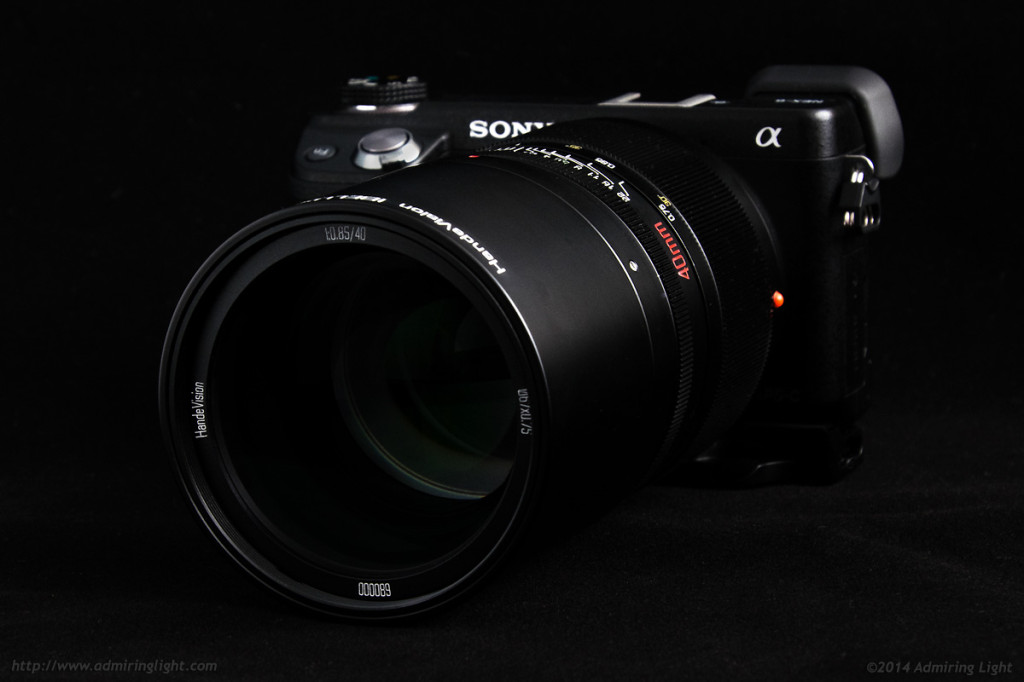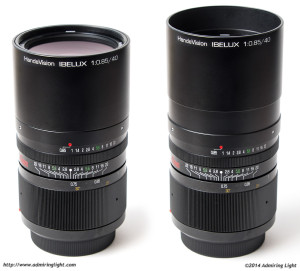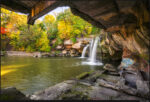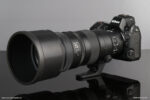Speed. It used to be than an f/1.4 lens was considered quite fast and f/1.2 was the pro-grade ultra-fast aperture. Very, very rarely, a manufacturer would produce a lens at f/1.0 or very slightly faster…the elusive f/0.95. Until recently, f/0.95 was an exceptionally rare aperture lens, only produced by Leica with their 50mm Noctilux. However, with more modern design and mirrorless cameras, there has been a huge push of f/0.95 lenses.
Voigtländer released a trio of f/0.95 lenses for Micro 4/3 that are quite excellent. Small makers like SLR Magic and more recently Mitakon have released 50mm f/0.95 lenses at varying price points, and usually with quite good optical quality. With the advent of the Metabones SpeedBooster, it is also possible to create f/0.9 optics by pairing the SpeedBooster with an f/1.2 lens.
Now we have new ground broken: The little known IB/E Optics in Germany has partnered with Kipon to produce the HandeVision Ibelux 40mm f/0.85. This lens is a half a stop faster than an f/1.0 lens and 1/3 stop faster than the previous fastest production lenses at f/0.95. For the bragging rights of having that ultra-fast f/0.85 aperture, HandeVision is charging a whopping $2,070. The lens is available for Sony E-mount (reviewed today), Fuji X-mount, Canon EF-M and Micro 4/3.

Construction and Handling
To say the Ibelux 40mm f/0.85 is a large and heavy lens is somewhat of an understatement. Given that it’s intended for mirrorless system cameras, the lens is utterly massive. It is very long for a 40mm lens (indeed longer than the Sony 18-105mm f/4), and extremely heavy at 2.6 pounds. To put that in perspective, it’s the same weight as the Canon 300mm f/4 IS or the original Canon 70-200mm f/2.8L. It’s a pound heavier than the Leica 50mm f/0.95 or the Mitakon 50mm f/0.95 and double the weight and size of the Voigtländer 42.5mm f/0.95. This means that the lens doesn’t handle well on these tiny bodies. In fact, with my NEX-6 and a6000, I fear the lens could damage the lens mount due to the weight and the lack of a tripod collar. This lens needs a tripod collar. I can’t think of a modern lens this heavy that doesn’t have one. Every time I pick up the camera with this lens attached, I am surprised by the sheer mass of this lens in relation to its focal length, and it’s not a fun lens to carry around.

To that end, in the construction department, it’s a solid chunk of glass and metal. It’s got a very old-school aesthetic that reminds me of older Vivitar lenses, with a wide ribbed focus ring and thin paint filled engravings. There is a built-in hood that takes up a large portion of the front of the lens, but only extends about a centimeter, providing minimal shading. Despite the heavy solid feeling, there are several things that make it feel as if it’s not as well constructed as you may be led to believe by the weight. The aperture ring has detents that are somewhat weak, and the ring only clicks in full stop increments, which is bizarre for a large modern lens. The focus ring also has essentially no damping whatsoever. While this allows you to focus with one finger, it also makes it far to easy to knock focus off once you’ve achieved it. Those nitpicks aside, it does feel like a solid hunk of a lens, but as you can tell, I am not a fan of how this lens handles. At all.
One other thing of note is the rather long minimum focus distance. For a lens with a ‘long normal’ field of view on APS-C cameras, it doesn’t focus closely at all. The 0.75m minimum focus distance can be somewhat limiting at times. Additionally, the lowered contrast and very shallow depth of field makes the lens very difficult to focus accurately, especially at further focus distances.
Speed
The Ibelux 40mm has an aperture of f/0.85. This is a half stop faster than f/1.0, and should lend the lens a great ability for use in extreme low light situations. It IS a very fast lens, though it’s worth noting that due to pixel shading, the lens will not expose like an f/0.85 lens on a digital camera sensor. Digital sensors are complex devices, and over each photosite sits a ‘micro-lens’ to help funnel the light on to the actual photodiode. Depending on a number of factors (microlens design, pixel size, sensor stack height etc), these microlenses can limit the light that can be collected. For the Sony bodies I used for testing this lens, the Ibelux exposes a bit less than 1 stop faster at f/0.85 than it does at f/1.4. I.e., it exposes slightly slower than an f/1.0 lens ‘should’ based on the aperture alone. Note that depth of field is not affected by pixel shading, only exposure.





Leave a Reply